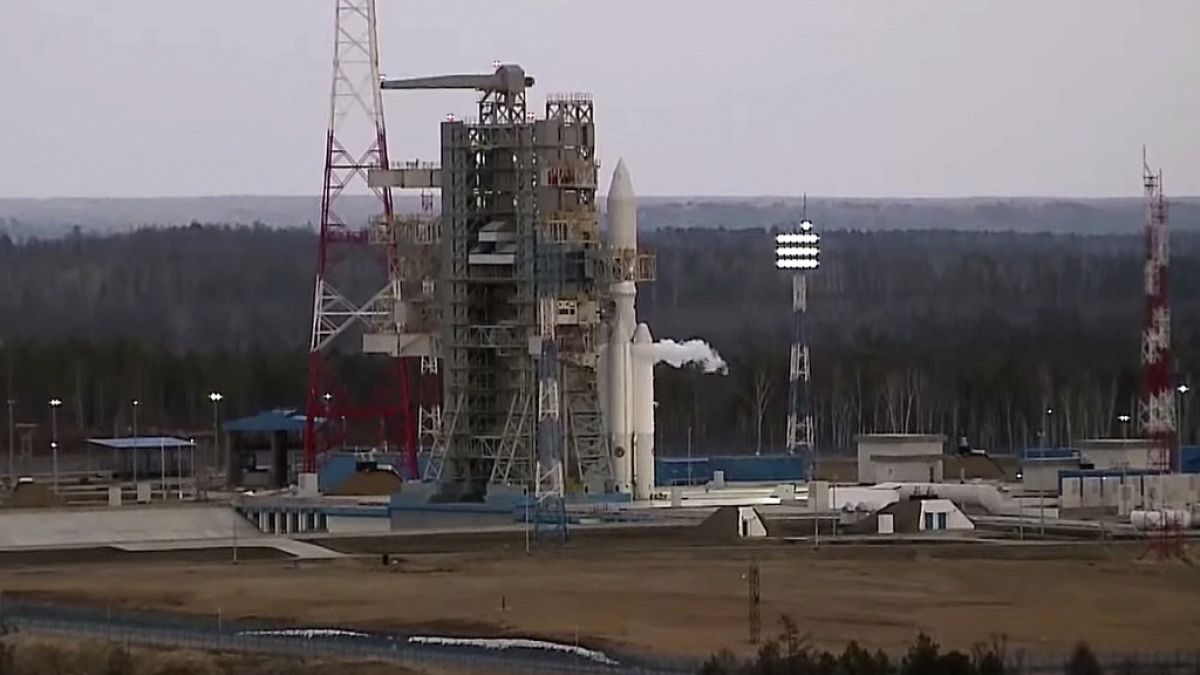National space agency Roscosmos said the launch attempt will be postponed for at least one day.
Russia's second attempt to test-launch a new heavy-lift rocket from its Far Eastern space complex was aborted on Wednesday.
The launch of the Angara-A5 rocket from the Vostochny spaceport was cancelled about two minutes before its planned time.
State news agency RIA-Novosti said the cause was a failure of the pressurisation system of the oxidiser tank in the rocket's central block.
The launch will be postponed for another day.
The first attempt on Tuesday failed because the automatic safety system registered a flaw in the same system, said Roscosmos head Yuri Borisov.
The launch was to be the fourth for the Angara-A5, a heavy-lift version of the new Angara family of rockets that has been developed to replace the Soviet-designed Proton rocket.
The previous three launches were carried out from the Plesetsk launchpad in northwestern Russia.
After the 1991 breakup of the Soviet Union, Russia leased the Baikonur Cosmodrome in Kazakhstan, and it continues to use the facility for most of its space launches.
The lease for $115 million a year runs through the end of 2050, but Moscow is keen to reduce its dependence on the base in favour of Vostochny, 7,000-odd kilometres to the east of Moscow.
